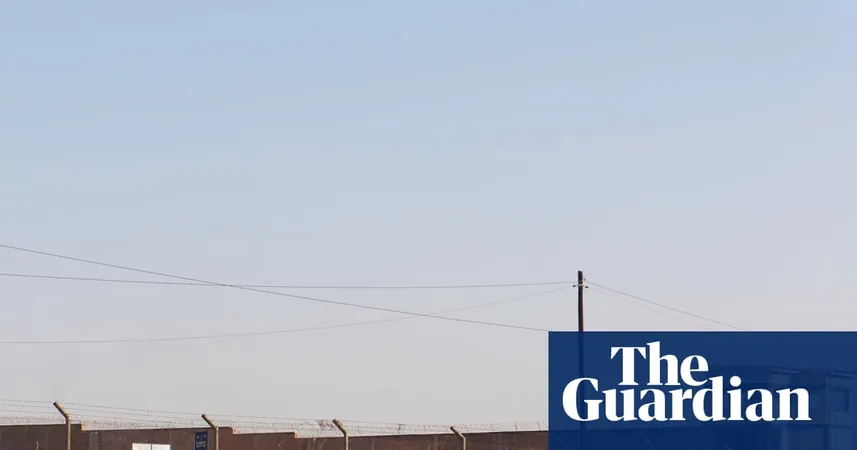
Shocking Solitary Confinement: US-Deported Migrants Face Dire Situation in Eswatini
2025-07-18
Author: Jessica Wong
Five Migrants in Solitary Confinement: What We Know
In a troubling development, five migrants recently deported from the United States to Eswatini are being held in solitary confinement. This situation raises serious human rights concerns under the Trump administration’s controversial third-country program.
An Unclear Future for the Deported
Eswatini government spokesperson Thabile Mdluli revealed that the duration of their confinement remains uncertain. These migrants, identified as citizens from Vietnam, Jamaica, Cuba, Yemen, and Laos, face serious legal issues back in the U.S., including convictions for heinous crimes like murder and child rape.
While Mdluli indicated plans for repatriation with assistance from a UN agency, she failed to specify a timeline or the exact correctional facility where the men are being held, citing security concerns.
International Reactions and Condemnation
The International Organisation for Migration (IOM) clarified that it had no role in the migrants' removal from the U.S. and had not been contacted regarding their return home. They assured that they stand ready to assist member states whenever feasible.
Human Rights Concerns in Eswatini
Prison conditions in Eswatini have sparked alarm. Recent reports from the U.S. State Department highlight credible allegations of torture and inhumane treatment within the nation's correctional facilities. Overcrowding and violence among prisoners add to the grim reality these deported migrants face.
The Trump Administration's Controversial Deportation Strategy
This deportation initiative aligns with the Trump administration's strategy of negotiating deals with countries to accept immigrants that the U.S. struggles to deport to their home nations. Although other administrations have used third-country removals, the choice of politically unstable or human rights-challenged countries has drawn significant international backlash.
Unanswered Questions Surrounding Agreements
Neither the government of Eswatini nor South Sudan, which recently accepted eight other deportees, has disclosed specific details about the agreements made with the U.S. Mdluli mentioned that these arrangements remain classified, raising further questions about the negotiations behind these procedures.
With human rights advocates closely monitoring the situation, the outcomes for these deported individuals remain fraught with uncertainty.




 Brasil (PT)
Brasil (PT)
 Canada (EN)
Canada (EN)
 Chile (ES)
Chile (ES)
 Česko (CS)
Česko (CS)
 대한민국 (KO)
대한민국 (KO)
 España (ES)
España (ES)
 France (FR)
France (FR)
 Hong Kong (EN)
Hong Kong (EN)
 Italia (IT)
Italia (IT)
 日本 (JA)
日本 (JA)
 Magyarország (HU)
Magyarország (HU)
 Norge (NO)
Norge (NO)
 Polska (PL)
Polska (PL)
 Schweiz (DE)
Schweiz (DE)
 Singapore (EN)
Singapore (EN)
 Sverige (SV)
Sverige (SV)
 Suomi (FI)
Suomi (FI)
 Türkiye (TR)
Türkiye (TR)
 الإمارات العربية المتحدة (AR)
الإمارات العربية المتحدة (AR)